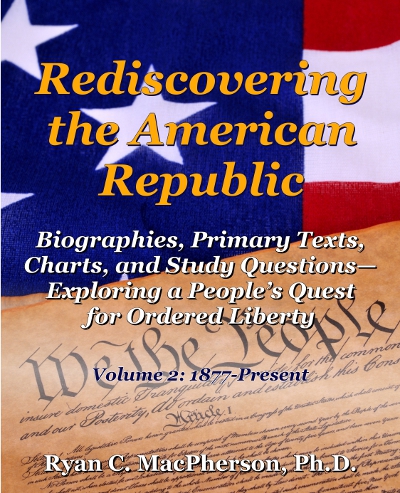STEM education is all the rage these days, and why shouldn’t it be? Science, Technology, Engineering, and Mathematics are closely related to one another, and jointly useful to society. The market knows this, and lucratively rewards those who pursue careers in these areas. Guidance counselors have compelling reasons to encourage students to pursue STEM studies.
However, STEM may disappoint its followers unless it is supplemented with, well, PHLEGM. This suggestion may not sound appealing at first, but that’s part of the point. PHLEGM represents those subjects that seem, shall we say, worthy of being spat out and left behind in the fast-paced world of the 21st century. However, PHLEGM remains as relevant and as useful as ever.
Permit me to explain.
Philosophy, History, Literature, Etymology, Geography, and Music—to name just a few of the forgotten arts—deserve to be preserved in our educational programs. PHLEGM provides a strong foundation for STEM, and a strong foundation for much else as well.
P for Philosophy
“Philosophy” sounds abstract, outdated, impractical, or just plain weird, right? Nevertheless, philosophy has what it takes to turbo-charge STEM careers.
As I noted in “A Degree in Philosophy Will Teach You to Identify Faulty Assumptions from Career Advisors,” philosophy courses provide a competitive edge in Silicon Valley. Tech careerists with a background in philosophy earn more than their less philosophical peers, and they also better understand that the secret to their happiness is not their increased wealth.
H for History
Experience can provide a perspective for acquiring wisdom. History gives us surrogate experience, thereby accelerating our growth in wisdom. As my dear friend Martin Luther wrote, “Historians are the most useful people and the best of teachers; we can never sufficiently honor, praise, or thank them.”
All flattery aside, Luther’s point was imminently practical. To lawyers, for example, he advised: “Histories always offer and teach more than laws and statutes: there actual experience teaches; here are untried and uncertain words.”
Through studying history, children learn to “form their own opinions and adapt themselves in the fear of God to life in this world.” Critical thinking? Practical life applications? A society that desires such an education ought steer students toward history.
L for Literature
To read with attention to language, to discern with precision how an author has embedded meaning into words, opens the mind to the discovery of truth.
Sadly, roughly one in ten American adults cannot read anything beyond a bus schedule or the icons (not words!) on their smartphone. Deep reading goes hand in hand with deep thinking. Shouldn’t we desire that all students rise beyond basic functionality and become proficient in their native tongue? I hope those adults who missed the boat the first time around can find a second chance, and I hope that children will receive a bountiful opportunity the first time around.
Let’s also stop kidding ourselves that poetry is not for physicists. Sixty years have passed since British scientist and novelist C.P. Snow lamented the bifurcation of the western mind into “science” and “humanities” in his 1959 lecture entitled “The Two Cultures.” Three years earlier, he had ominously concluded an article with these foreboding words: “because the two culture scarcely touch, we have been most deprived.”
To realize our full humanity, and to fully appreciate our neighbor, those who know some Shakespeare ought to also have a clue about the Second Law of Thermodynamics, and vice versa. And if we listen to both the poet and the physicist long enough, we might just discover that a poet’s choice phrasing points to enduring truths, even as quantum mechanics reveals a world not quite so rigidly objective as we once thought. In other words, just because their favorite academic buildings are on opposite sides of the college campus does not mean that their minds have to be worlds apart. We need both STEM and PHLEGM, and not merely because the two rhyme.
E for Etymology
A few years ago I enumerated “7 Benefits from Studying a Foreign Language.” Nevertheless, if you are not willing to take the time to learn a second language, at least pause long enough to learn some root words from Greek and Latin.
Sixty percent of English words come from Latin, and the proportion is even higher when focusing on higher-level vocabulary. (Hint: “word” has a German root; “vocabulary” has a Latin root.) Key terminology for science and medicine relies heavily upon Greek root words as well.
The sooner one learns the “classical” languages, the easier it will be to remember that the foramen magnum (Latin: big hole) is the opening at the base of the skull, or that the adrenal (Latin: on top of the kidney) gland is, well, located right above the kidney, as in, “renal dialysis.” But, when things really go wrong, be sure to have your Greek ready: it’s not renumitis but nephritis (Greek: inflammation of the kidney).
G for Geography
Does a brain surgeon need to know where the Nile River is located? Does a software engineer need to know which timezone New Jersey is in? Before you answer, please scroll up to re-read the “Philosophy” section.
In a narrowly pragmatic sense of necessity, no, a brain surgeon does not need to know where the Nile River is. In a more broadly pragmatic sense, of course, he ought to learn it. For example, he might fly to Cairo for a conference. Worse, he might live in Mississippi and not know where the Mississippi River is. That would go badly if it happened to come out in “small talk” before a job interview.
I speak from experience. My experience is that I know where both of those rivers are, but that a fair number of college freshmen do not. They didn’t get enough PHLEGM in their K–12 classes, and as a college history professor I’m their last chance to catch up before leaving for that place called the Real World.
M for Music
Dogs bark. Birds chirp. Nature may seem to have its own symphony. But it does not.
Symphonies are what brilliant composers create for orchestras to perform. Both the composing and the performing are distinctly human acts. So is the listening, by which I mean the deep, contemplative listening—not the way your cat listens, but the way your grandmother always listened. Remember her?
Some humans also use computers. And other humans program computers. Again, these are distinctly human acts. PHLEGM and STEM together put the “sapiens” (Latin for wisdom—remember “Etymology,” above?) into Homo sapiens.
God created us. Being made in His image, we continue that work: composing music, performing music, listening to music, inventing calculus, solving a quadratic equation, puzzling over whether imaginary numbers exist as a set of real numbers or not.
Music, explained Plato, is geometry for the ears. No “two cultures” for that philosopher.
Beyond Acronyms
Plato would not have appreciated the cultural impasse we observe today between the disgusting acronym PHLEGM and the more respectable acronym STEM. I’ve read enough Plato to conclude with confidence that he would have preferred to combine the two and dispense with acronyms altogether.
What, then, should we call this collection of knowledge and skills?
Hmm. Dare we admit … the Liberal Arts?
Dr. Ryan C. MacPherson is the founding president of Into Your Hands LLC and the author of several books, including Rediscovering the American Republic (2 vols.) and Debating Evolution before Darwinism. He lives with his wife Marie and their homeschooled children in Casper, Wyoming, where he serves as Academic Dean at Luther Classical College. He previously taught American history, history of science, and bioethics at Bethany Lutheran College, 2003–2023 He also serves as President of the Hausvater Project, which mentors Christian parents. For more information, visit www.ryancmacpherson.com.


